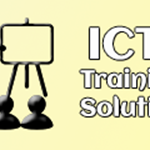Poultry production in Eastern Africa currently makes a significant economic contribution at both household and national levels. Its Importance is however not captured in the government economic data. Skilled manpower specialised in poultry production is limited. Specialised Courses in Poultry production and health that are important in improving poultry production are not offered by Training Institutions in Eastern Africa. Nevertheless, the potential of poultry production as an economic enterprise is very high. In the rural areas where close to 80% of the people live and where per capita income is the lowest, poultry has a high potential for poverty reduction and wealth creation. Commercial poultry production enterprises that are concentrated mainly in urban and peri-urban areas are not doing very well as business enterprises. Both in rural and urban areas, poultry production are constrained by high prevalence of killer diseases and poor husbandry methods. This is in spite of the great market potential for poultry meat and products.
There is thus urgent need of training specialised manpower in order to promote poultry production. A Certificate Course in poultry production would equip graduates with knowledge and skills for all levels of poultry production enterprises. The Certificate graduate will be especially equipped with practical skills. There shall be a strong bias in practical skills.
Programme Summary
Programme Informations
Five passes at ‘O’ level or its equivalent, the passes must include biology/agriculture and chemistry.
LEVEL 1
| CODE | COURSE TITLE | UNITS |
| OSS 121 | Introduction to Sociology | 2 |
| OSS 122 | Introduction to Social Science Research Methods | 2 |
| OSS 123 | Classical Sociological Theory | 2 |
| OSS 124 | Introduction to social Psychology | 2 |
| OSS 125 | Critical thinking and argumentation | 2 |
| OCP 100 | Introduction to computer | 1 |
| OFP 017 | Communication skills | 1 |
NOTE: After successful completion of all core courses in level I above, a student willbe allowed to choose a specialization from options A, B or C. However, while doing a specialization course of one’s choice, in level II and III, students MUST also do compulsory courses in levels 11 and level III respectively. See the table below on guide to units for BASO students.
LEVEL II
| CODE | COURSE TITLE | UNITS |
| OSS 221 | Contemporary Sociological Theory | 2 |
| OSS 222 | Social Science Research Methods | 2 |
| OSS 223 a | Field Practice I | 1 |
LEVEL III
| CODE | COURSE TITLE | UNITS |
| OSS 321 | Sociology of knowledge | 2 |
| OSS 322 | Poverty, wealth and inequality | 2 |
| OSS 323 | Globalization and social problems | 2 |
| OSS 223 b | Field practice II | 1 |
Sn. | Item | Total programme fees | ||
|
| Tanzanians Tshs. | EAC & SADC US$ | Non-EAC& SADC US$ |
01 | Theoretical courses | 360,000.00 | 240.00 | 480.00 |
02 | Practical modules | 300,000.00 | 240.00 | 480.00 |
03 | TOTAL | 660,000.00 | 480.00 | 960.00 |
| NAME | CONTACTS |
Students’ understanding and knowledge in each topic shall be assessed by a student Portfolio and sitting for one timed tests and one examination and in addition, a practical report shall be assessed.






